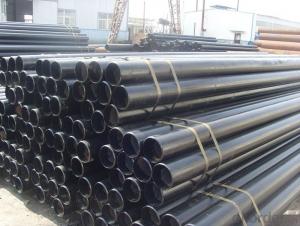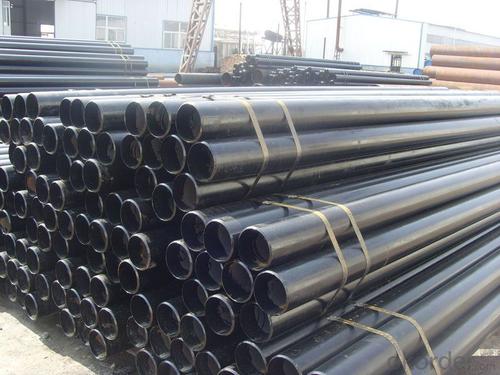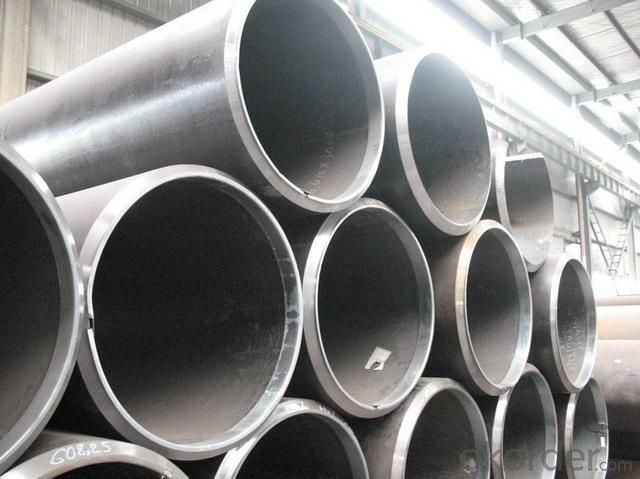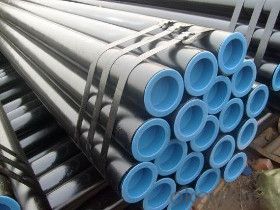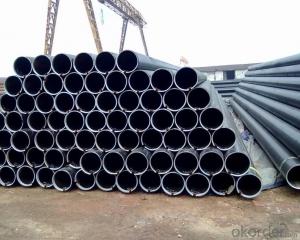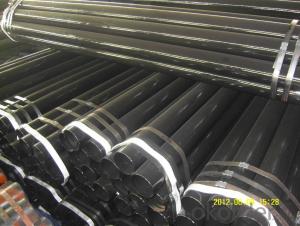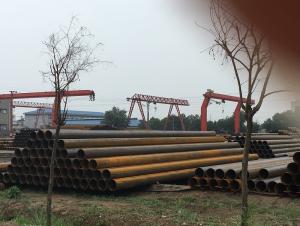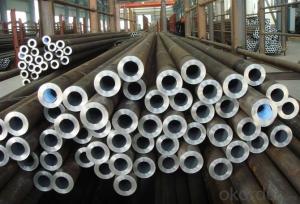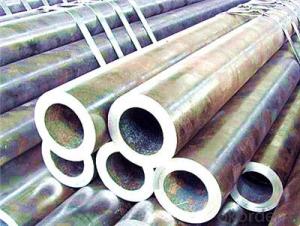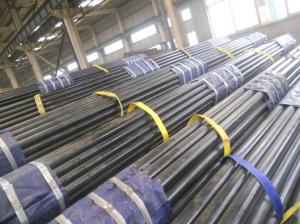GR.B Carbon Seamless Steel Pipe With Best Quality
- Loading Port:
- Tianjin
- Payment Terms:
- TT OR LC
- Min Order Qty:
- 33 m.t.
- Supply Capability:
- 555 m.t./month
OKorder Service Pledge
OKorder Financial Service
You Might Also Like
PRODUCT DETAILS
1.Structure of Seamless Steel Pipe Description:
A large amount of Seamless Steel Pipes is offered to the clients at cost effective rates. These pipes are extremely durable, resistant to corrosion and have high tensile strength. Our pipes are used in nuclear plants, power plants, refineries and construction industry across the country. Furthermore, we are capable of providing these seamless pipes to the clients in bulk quantity.
2.Main Features of the Steel Pipe:
• High manufacturing accuracy
• High strength
• Small inertia resistance
• Strong heat dissipation ability
• Good visual effect
•Reasonable price
3.Packaging & Delivery:
| Packaging Details: | Seaworthy packages, bundles wrapped with strong steel strip |
| Delivery Detail: | 15-30 days after received 30% TT |
4.Seamless Steel Pipe Specification:
| Standard: | GB, DIN, ASTM,ASME, ASTM A106-2006, ASTM A53-2007 |
| Grade: | 10#,20#, 45#, 16Mn |
Thickness: | 8 - 33 mm |
| Section Shape: | Round |
| Outer Diameter: | 133 - 219 mm |
| Place of Origin: | Shandong, China (Mainland) |
| Secondary Or Not: | Non-secondary |
| Application: | Hydraulic Pipe |
| Technique: | Cold Drawn |
| Certification: | API |
| Surface Treatment: | factory state or painted black |
| Special Pipe: | API Pipe |
| Alloy Or Not: | Non-alloy |
| Length: | 5-12M |
| Outer Diameter: | 21.3-610mm |
5.Product pictures
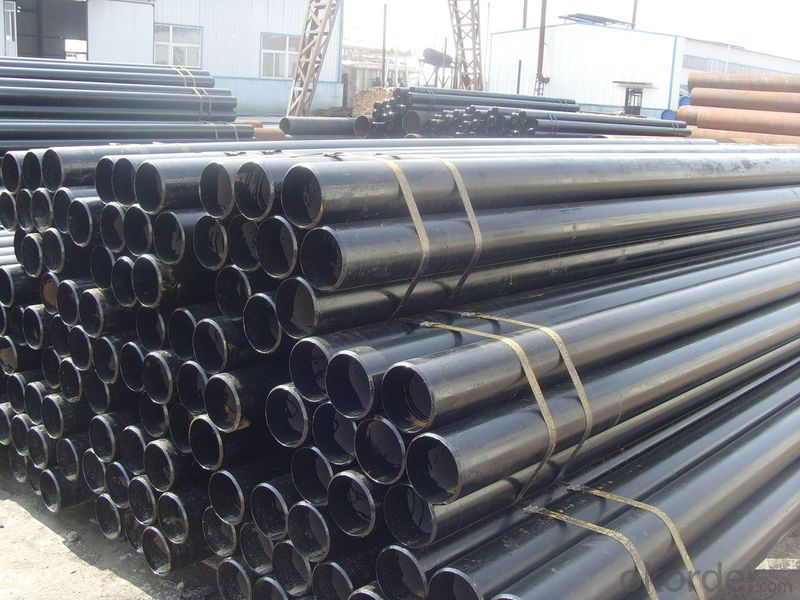
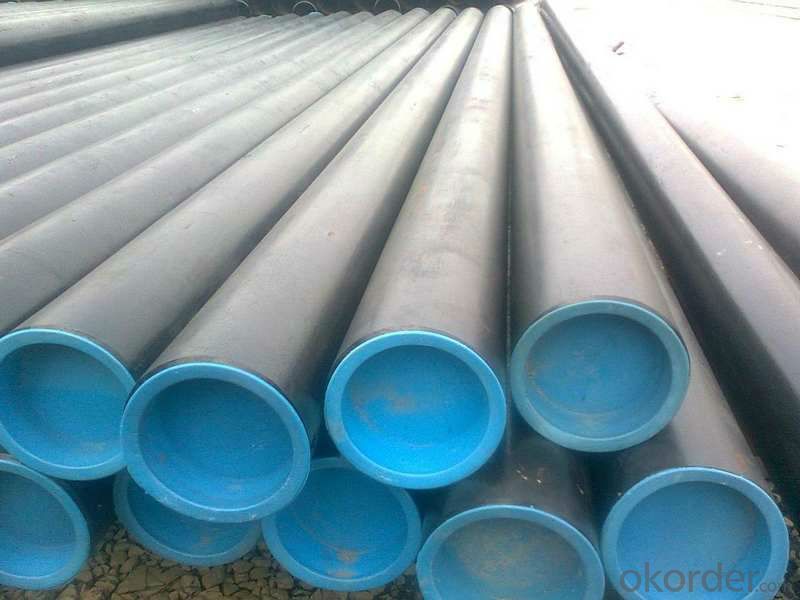
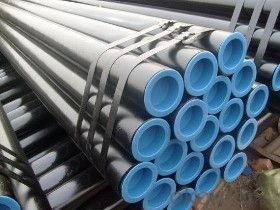
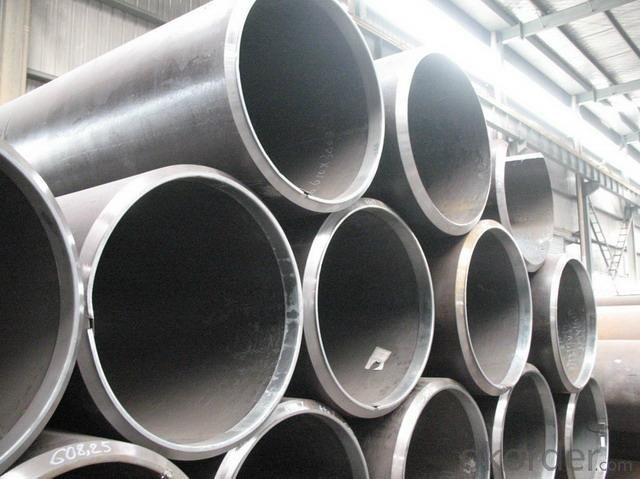
6.FAQ of Seamless steel pipe:
①How is the quality of your products?
Our products are manufactured strictly according to national and internaional standard, and we take a test
on every pipe before delivered out. If you want see our quality certifications and all kinds of testing report, please just ask us for it.
Guaranteed: If products’ quality don’t accord to discription as we give or the promise before you place order, we promise 100% refund.
②How about price?
Yes, we are factory and be able to give you lowest price below market one, and we have a policy that “ for saving time and absolutely honest business attitude, we quote as lowest as possible for any customer, and discount can be given according to quantity”,if you like bargain and factory price is not low enough as you think, just don’t waste your time.Please trust the quotation we would give you, it is professional one.
③Why should you chose us?
Chose happens because of quality, then price, We can give you both.Additionally, we can also offer professional products inquiry, products knowledge train(for agents), smooth goods delivery, exellent customer solution proposals.Our service formula: good quality+good price+good service=customer’s trust.
SGS test is available, customer inspection before shipping is welcome, third party inspection is no problem.
Any question, pls feel free to contact us !
- Q: What are the quality control measures for steel pipe production?
- Quality control measures for steel pipe production typically involve several steps to ensure the final product meets the required specifications and industry standards. These measures may include inspection of raw materials, such as the steel coils or plates, to ensure they meet the required chemical composition and mechanical properties. During manufacturing, various processes like forming, welding, and heat treatment are closely monitored to maintain dimensional accuracy and integrity. Non-destructive testing methods, such as ultrasonic or radiographic inspection, are often employed to detect any defects or anomalies in the pipes. Additionally, visual inspection, surface treatment assessment, and mechanical testing are conducted to assess the overall quality before the pipes are released for distribution.
- Q: Can steel pipes be used for structural supports?
- Yes, steel pipes can be effectively used as structural supports due to their high strength, durability, and ability to withstand heavy loads.
- Q: How do you cut steel pipes?
- One common method to cut steel pipes is by using a hacksaw or a reciprocating saw fitted with a metal-cutting blade. However, for larger and thicker pipes, professionals often employ specialized tools such as a pipe cutter or a plasma cutter, which offer more precision and efficiency.
- Q: The difference between 12Cr1MoVG alloy steel tube and 15CrMo
- 15CrMo is a steel Pearlite Heat-resistant steel, has high heat resistance at high temperature (b = 440MPa) and antioxidant activity, and has certain ability of anti hydrogen corrosion. Because of the high content of Cr, C and other alloy elements in steel, the tendency of hardening of steel is obvious, and the weldability is poor.
- Q: Can steel pipes be used for solar power systems?
- Yes, steel pipes can be used for solar power systems. Steel pipes are commonly used for various applications in solar power systems, including the construction of support structures, mounting systems, and piping systems for circulating heat transfer fluids. Steel pipes are preferred due to their strength, durability, and resistance to environmental conditions. They can handle the weight of solar panels, support structures, and withstand the forces exerted by wind and other external factors. Additionally, steel pipes can be easily customized and welded to meet specific project requirements. Overall, steel pipes are a reliable and cost-effective choice for solar power systems.
- Q: How are steel pipes protected against chemical corrosion?
- Steel pipes are protected against chemical corrosion through various methods such as applying protective coatings, using corrosion-resistant alloys, and implementing cathodic protection systems.
- Q: Can steel pipes be used for scaffolding?
- Yes, steel pipes can be used for scaffolding. They are commonly used in construction projects as they provide strength, durability, and stability required for supporting workers and materials at elevated heights. Steel pipes are known for their load-bearing capacity and can be easily assembled and disassembled, making them a suitable choice for scaffolding systems.
- Q: What is the impact of temperature on steel pipes?
- The significance of temperature on steel pipes cannot be underestimated, as it can bring about both positive and negative consequences. When exposed to high temperatures, steel pipes undergo thermal expansion, which can result in distortion or buckling. This expansion also has the potential to affect joints and connections, leading to leaks or failures. Hence, it is imperative to take into consideration the coefficient of thermal expansion during the design and installation of steel pipes in environments with elevated temperatures. Conversely, steel pipes possess remarkable thermal conductivity, enabling them to endure high temperatures without substantial deterioration. This characteristic renders them suitable for applications where heat transfer is of utmost importance, such as in industrial processes or heating systems. Extreme cold temperatures also pose a threat to steel pipes. Freezing conditions cause water or other fluids within the pipes to expand, resulting in cracks or bursts. This can lead to leaks, fluid loss, and potential harm to surrounding structures. Consequently, it is necessary to implement appropriate insulation and preventive measures to ensure the integrity of steel pipes in cold environments. Moreover, temperature fluctuations can impact the mechanical properties of steel, including its tensile strength and toughness. Prolonged exposure to elevated temperatures can cause a phenomenon known as thermal degradation, which diminishes the steel's strength and renders it more susceptible to deformation or failure. In conclusion, temperature exerts a significant influence on steel pipes, affecting their structural integrity, thermal performance, and mechanical properties. Proper design, insulation, and maintenance are crucial to guarantee the safe and efficient operation of steel pipes under varying temperature conditions.
- Q: How are steel pipes protected against seismic activities?
- Steel pipes are protected against seismic activities through various measures. One common method is the use of seismic restraint systems, which include bracing, clamps, and supports that are designed to withstand the forces generated during an earthquake. Additionally, pipes can be coated with corrosion-resistant materials to enhance their durability and resistance to seismic events. Regular inspection and maintenance of the pipes are also essential to ensure their continued protection against seismic activities.
- Q: Can steel pipes be used for chemical processing plants?
- Yes, steel pipes can be used for chemical processing plants. Steel pipes have excellent strength, durability, and resistance to corrosion, making them suitable for transporting various chemicals and fluids in a chemical processing plant. Additionally, steel pipes can withstand high temperatures and pressures, ensuring safe and efficient operations in such industrial settings.
Send your message to us
GR.B Carbon Seamless Steel Pipe With Best Quality
- Loading Port:
- Tianjin
- Payment Terms:
- TT OR LC
- Min Order Qty:
- 33 m.t.
- Supply Capability:
- 555 m.t./month
OKorder Service Pledge
OKorder Financial Service
Similar products
Hot products
Hot Searches
Related keywords
